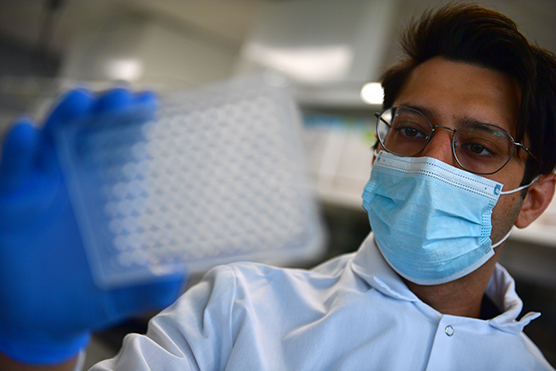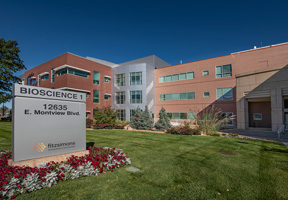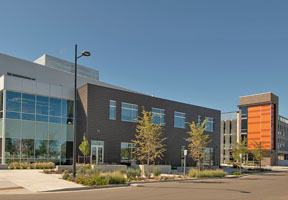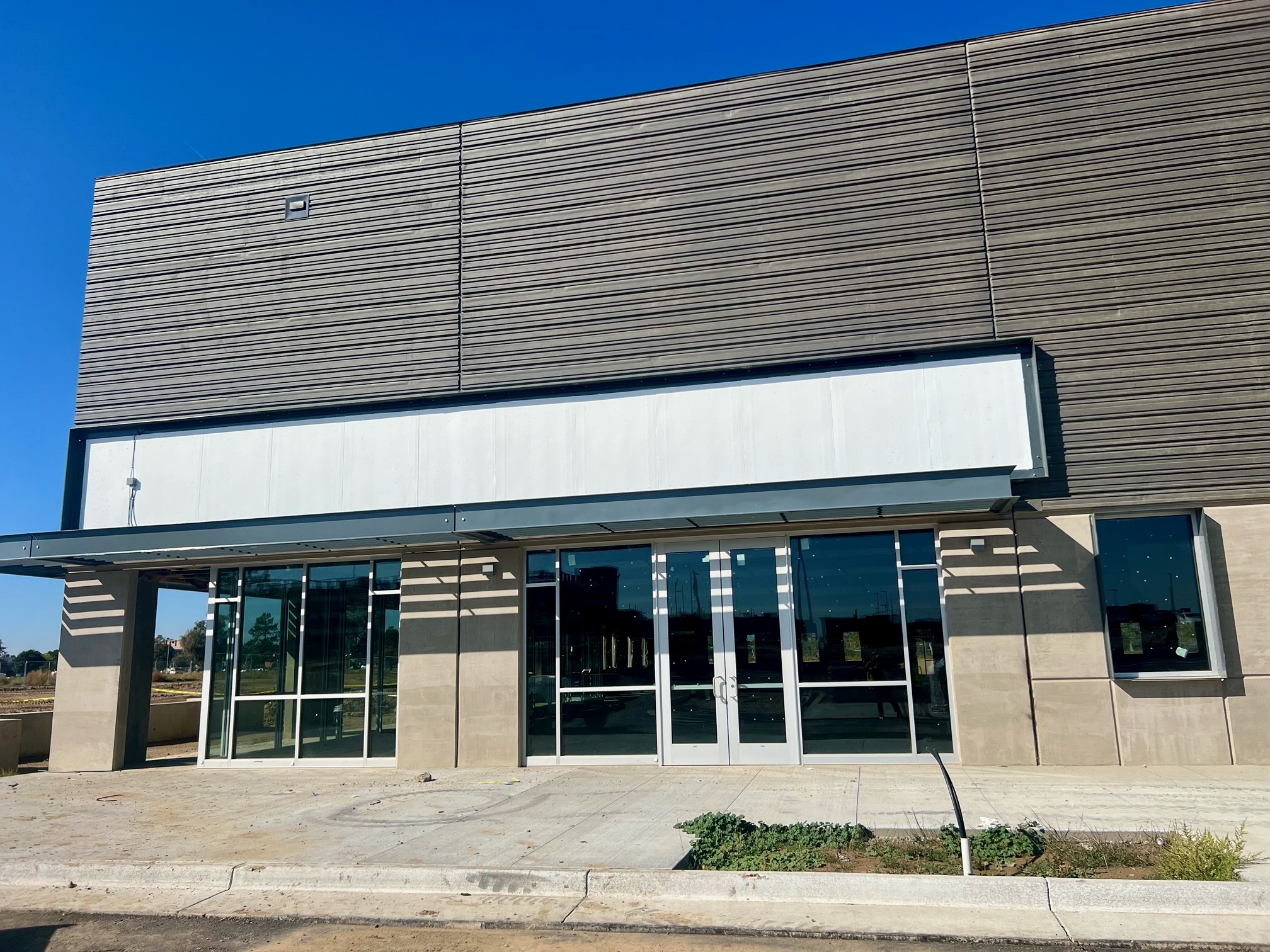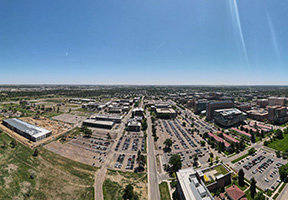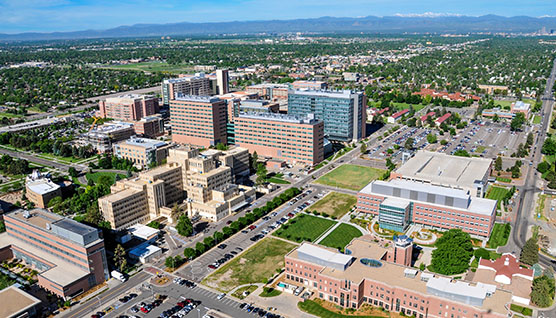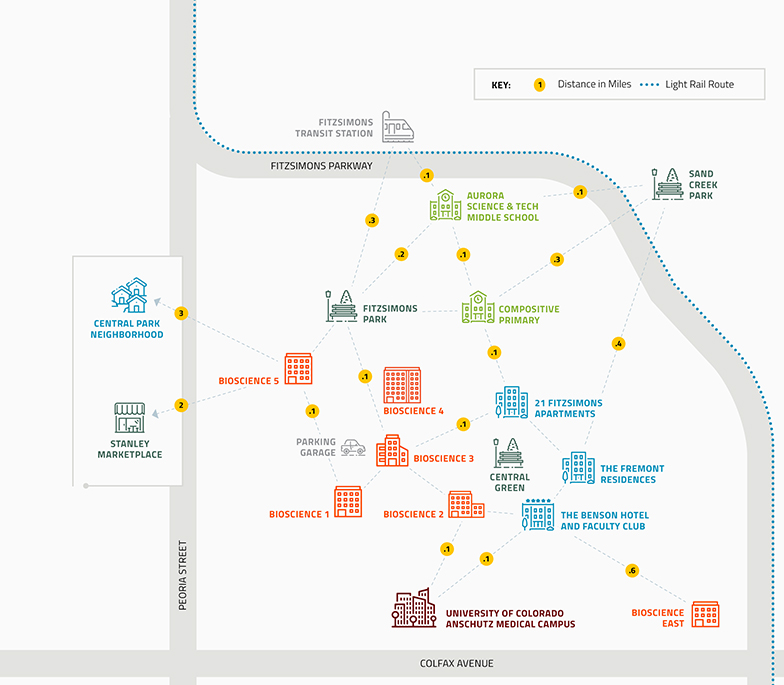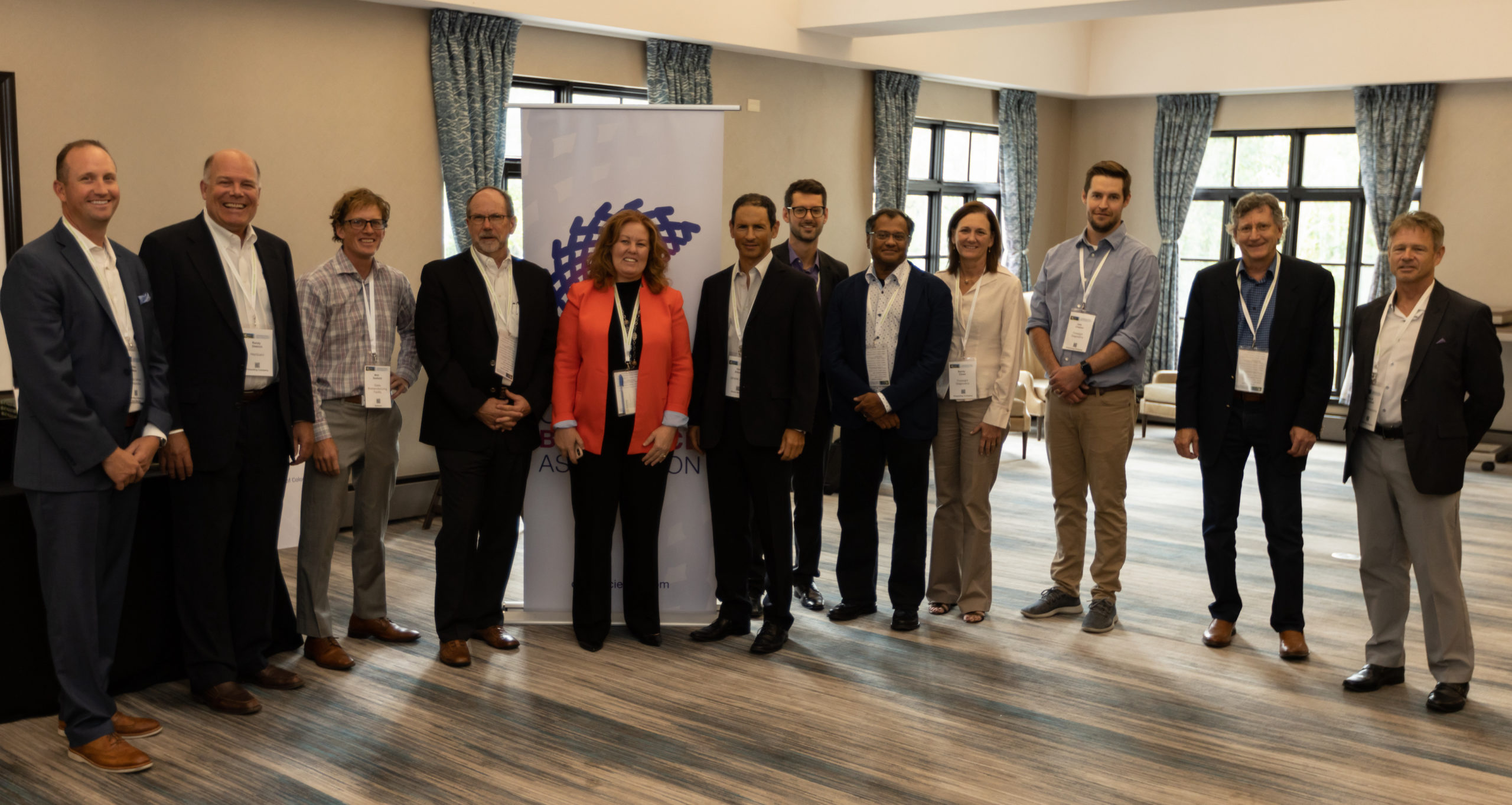Fitzsimons Innovation Community has been a partner of the Rocky Mountain Life Sciences Investor & Partnering Conference since its inception, recognizing the importance of this gathering to showcase groundbreaking research and innovations in the region. Learn more about the 2022 presenting companies from our Community who share a passion for taking their research to the next level to improve care, cure diseases, and save lives.
These companies were selected to present at the Conference–all of whom are actively seeking funding. Learn more about these health innovators passionate about transforming science into the future of health and care for patients.
Ceria is developing a pipeline of drug products based on a single active agent to treat inflammatory diseases with severe morbidity such as nonhealing wounds, acute lung inflammation, and severe intestinal distress. The company’s core technology addresses these conditions with single-administration drug products that block the underlying cause to rapidly resolve each condition. Patient benefits include the prevention of long-term drug therapy, surgery, and even death.
EnteroTrack
EnteroTrack develops simple-to-use, minimally invasive technologies to sample gastrointestinal (GI) mucosal content that can be assayed for various biomarkers of disease. There is currently no inexpensive, non-endoscopic, non-invasive, upper gastrointestinal (GI) sampling technique for children and adults. Coupling such routine, yet localized, sampling capability with new molecular, genomic, and microbiome assays for screening, monitoring and diagnostics would substantially enhance personalized medicine approaches in a wide variety of areas including food allergy, metabolic syndrome, GERD, gut microbiome, esophageal cancer, Eosinophilic Esophagitis, and other conditions within the GI, nutrition, allergy, or microbiome spaces.
Foresight Diagnostics is a precision medicine company dedicated to improving the lives of cancer patients through improved cancer detection methods. There are 1.2 million cases of cancer in the US each year. Of the patients that are treated, approximately half of them will experience relapse, and over 600,000 will die each year. Early detection of cancer and cancer recurrence saves lives and healthcare costs. While there have been major advances in the use of liquid biopsy assays to speed the diagnosis and detection of cancer, current methods perform poorly when disease burden is low. This means that in the early stages of cancer, when detection is critical to improve survival, cancer can go undiagnosed, leading to disease progression. The low limit of detection of existing liquid biopsy assays also means that recurrence after treatment is often not detected until the tumors are large enough to be visible with conventional imaging, at which point the disease is much more difficult to treat.
GelSana is a biomaterials company developing new products to heal wounds, particularly chronic wounds, a particular problem for diabetics but also present in other patients. Systemic inflammation in these patients leads to issues with vascularization and healing, and chronic wounds are prone to infection. Today’s wound dressings increase inflammation by interacting with the tissue that is trying to heal. GelSana has developed a proprietary hydrogel that prevents the foreign body response and can promote anti-inflammatory and pro-healing conditions. These gels could have applicability across multiple wound types and have shown substantially decreased healing time in preclinical studies. As an added benefit, the hydrogel can be formulated to deliver therapeutics in a sustained manner over time, eliminating the need to continually reopen the wound bed and reapply ointments. These gels will be a valuable tool to heal wounds that are showing limited response to other healing solutions.
HepQuant is a privately-held company with unique, patented and patent-pending technology for evaluating the liver in patients with chronic liver disease. Currently, there is no effective liver function test available. The liver enzyme panel referred to as “Liver Function Tests” measures variable liver damage. Biopsies have been the gold standard to understand disease severity in liver disease, but companies developing drugs to treat liver disease are losing billions by errors in biopsy reads due to sampling error and reading error (pathologists can’t agree on fibrosis scores). There are many diagnostics companies developing new noninvasive technologies to assess biopsy metrics, but these are surrogates of surrogates and are measuring the results of damage, not the actual functional health of the liver. Company data has shown that measuring liver function with HepQuant correlates more with detecting risk for outcomes than biopsy fibrosis, changes in liver function are more predictive of disease progression and outcomes, and functional improvement in response to therapy may be indicative of a lower risk for outcomes. Data shows HepQuant’s tests are highly reproducible so can detect a significant response in a short time frame in a small number of patients in response to liver interventions.
RheumaGen is developing a pipeline of HLA gene-editing therapies to cure rheumatoid arthritis (RA) and other major autoimmune diseases. Human leukocyte antigen (HLA) is the main genetic factor related to autoimmune diseases, accounting for approximately half of known genetic predisposition. RA is a chronic disease that occurs in approximately 1% of the world’s population and leads to extensive joint destruction and increases the risk of cardiovascular and respiratory diseases, resulting in significantly increased early mortality. Treatment requires consistent and aggressive tactics to control symptoms, manage pain, and stop disease progression. Severe cases of RA are most commonly treated with expensive biologic drugs, such as Humira, which while effective for some patients, globally suppress the immune system. RheumaGen has the potential to change the entire RA paradigm: Instead of suppressing the immune system, RheumaGen simply instructs it that no response is needed. As a result, no inflammation, joint pain, or bone loss should follow.
Validus is developing the first cell therapy targeting bacterial infections. The company believes the current strategy to produce novel small molecule chemical antibiotics is broke therapeutically and economically. Validus’ approach leverages knowledge of immunomodulatory capabilities of stem cells to produce an innate immune stimulatory reaction to resolve infections. Using stem cells to increase innate immune activity at the site of infection will not result in emergence of new resistance.
Vona Oncology is committed to developing lifesaving medicines for patients affected by aggressive cancers. Cancer remains the single-largest and most significant health challenge of our time. The company’s lead drug candidate, VDX-111, is being developed in pre-clinical studies for the treatment of triple-negative breast cancer (TNBC), which affects approximately 20% of women diagnosed with breast cancer and for which there are very few effective treatment options available. While chemotherapy and some newly approved immunotherapy options have become the mainstay of treatment, not all patients experience a meaningful response necessitating demand for new options. Of those who do respond, many often experience harmful side effects, disease relapse, treatment resistance and/or disease progression. The company’s goal is to validate that VDX-111 represents a promising new treatment option for TNBC. Vona Oncology has obtained an NCI Fast-Track SBIR grant for moving VDX-111 into clinical trials. Its IND-enabling studies are designed, and anticipated to, demonstrate strong efficacy in TNBC tumor models, with low toxicity of VDX-111 in animals. PK/PD studies will also be conducted under this grant mechanism.

